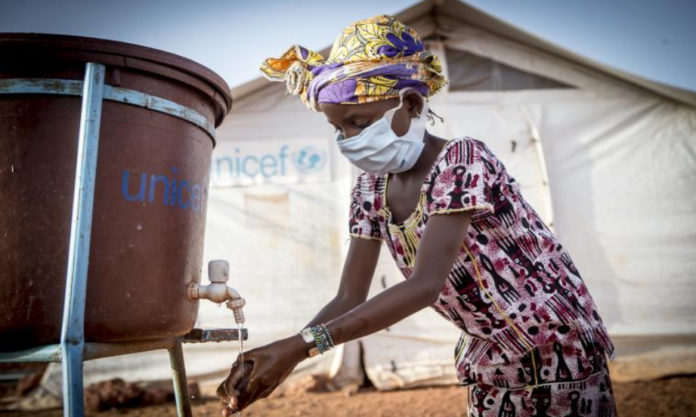New Delhi (NVI): About 3 billion people around the world lack basic handwashing facilities at home, the UNICEF said, noting that washing of hands with soap is critical in the fight against infectious diseases like COVID-19.
According to the UN Children’s Fund (UNICEF) new estimates, 40 per cent of the world’s population, or three billion people, do not have a handwashing facility with water and soap at home. The number is much higher in least developed countries, where nearly three-quarters go without these facilities.
Kelly Ann Naylor, Associate Director of Water, Sanitation and Hygiene at UNICEF, said that it was unacceptable that the most vulnerable communities are unable to use the simplest of methods to protect themselves and their loved ones.
“The pandemic has highlighted the critical role of hand hygiene in disease prevention. It has also stressed a pre-existing problem for many: handwashing with soap remains out of reach for millions of children where they’re born, live and learn.”
“We must take immediate action to make handwashing with soap accessible to everyone, everywhere, now and in the future,” Naylor added.
Moreover, the situation is also alarming at schools, with 43 per cent globally (70 per cent in least developed countries) lack a handwashing facility with water and soap, affecting hundreds of millions of school-age children, as per the UNICEF estimates.
“In the least developed countries, seven out of 10 schools have no place for children to wash their hands with water and soap,” it added.
The organization further said that the regular handwashing with soap and water is a first line of defence in protecting from deadly virus (COVID-19), but in sub-Saharan Africa, 63 per cent of people in urban areas, or 258 million people, lack access to decent handwashing facilities.
In Central and South Asia, 22 per cent of people in urban areas, or 153 million people, lack access to handwashing. Nearly 50 per cent of urban Bangladeshis, or 29 million people and 20 per cent of urban Indians, or 91 million, lack basic handwashing facilities at home, the UN agency said.
UNICEF along with the World Health Organization (WHO) launched the “Hand Hygiene for All” initiative to support the development of national roadmaps to accelerate and sustain progress towards making hand hygiene a mainstay in public health interventions.
This means rapidly improving access to handwashing facilities, water, soap and hand sanitizer in all settings, as well as promoting behavioural change interventions for optimal hand hygiene practices, the UNICEF said.
However, the initiative will bring together international, national, and local partners, to ensure affordable products and services are available and sustainable, especially in vulnerable and disadvantaged communities.
-RJV








